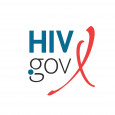Flu season is upon us, and that means it’s time to get a flu vaccine.
Flu is a contagious respiratory illness caused by influenza viruses that infect the nose, throat, and lungs. Every year, millions of people get infected with flu, with potentially serious complications. Getting the yearly flu vaccine is the best way to protect yourself and others from flu.
While seasonal flu activity is currently low across most of the country, CDC recommends that, ideally, everyone should be vaccinated by the end of October. Contact your healthcare provider, local health department, or pharmacy, or use the Flu Vaccine Finder to find a flu vaccine in your area.
According to CDC, almost everyone 6 months and older should get a flu vaccine each season. Flu vaccines are particularly important for people with HIV. People with HIV, especially those who have a very low CD4 cell count or are not on antiretroviral therapy (ART), are at a higher risk of developing serious flu-related complications and hospitalization. For this reason, people with HIV should get an annual flu shot (not the nasal spray) as the best form of protection against flu.
People with HIV should also be up to date with their pneumococcal vaccination to protect against pneumococcal diseases, such as pneumonia, meningitis, and bloodstream infections. Pneumococcal pneumonia is a serious flu complication that can cause death.
If you have HIV and get sick with flu symptoms, call your doctor right away. CDC recommends prompt flu antiviral treatment for people with HIV who have flu or suspected flu.
Other Respiratory Viruses: COVID-19 and RSV
In addition to flu, several other respiratory viruses spread during flu season, including COVID-19 and respiratory syncytial virus (RSV).
COVID-19 Vaccine. CDC recommends that everyone ages 6 months and older should get a 2024–2025 COVID-19 vaccine. This includes people with HIV. The COVID-19 vaccine helps protect against severe disease, hospitalization, and death. It is especially important to get a 2024–2025 COVID-19 vaccine if you are ages 65 and older, are at high risk for severe COVID-19, or have never received a COVID-19 vaccine. There are different recommendations if you are moderately or severely immunocompromised.
RSV Vaccine. CDC also recommends a single dose of RSV vaccine for all adults ages 75 and older and adults ages 60–74 at increased risk of severe RSV. This includes people with HIV, based on shared decision-making between the patient and healthcare provider.
Talk to your healthcare provider about what is right for you.
Learn More
Learn more about seasonal flu to protect yourself and educate others:
- Read our HIV Basics page: Flu and People with HIV
- Read CDC’s page: Flu and People Living with HIV
- Read CDC’s page: People at Increased Risk for Flu Complications
- Visit vaccines.gov for important information about the flu vaccine and different ways to pay for vaccines.
Remember, the best way to prevent seasonal flu is to get vaccinated every year.
This blog post was published October 21, 2024, on HIV.gov.








Comments
Comments